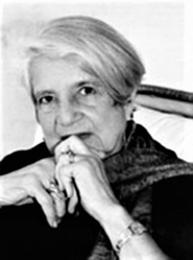 |
|
| Jean Fagan Yellin | |
Historian Jean Fagan Yellin, "whose six years of sleuthing revealed that what had been presumed to be a 19th-century white author's fictional account of a young woman's life as a slave in the American South was, in fact, a rare autobiography written by a formerly enslaved woman," died July 19, the New York Times reported. She was 92. Yellin published Harriet Jacobs: A Life in 2004.
Jacobs's book, Incidents in the Life of a Slave Girl, "vividly recounted her enslavement from her birth in North Carolina in 1813. She was taught to read and write by the benevolent mistress whose family owned her," the Times noted, adding: "She recalled that when she was 12, she fell into the hands of a sexually abusive plantation owner who, years later, would threaten to sell her children if she rebuffed his advances. Her children had been fathered by another white man, who ultimately freed them. She managed to escape, hiding in a three-foot-high crawl space in her free grandmother's attic, where for seven years she read newspapers and the Bible. In 1842, she fled as a fugitive to New York."
Published in 1861, Incidents in the Life of a Slave Girl was promoted as "Written by Herself," though under a pseudonym, Linda Brent, and widely credited to its editor, Lydia Maria Child, a journalist, abolitionist, and advocate for women's and Native American rights.
Yellin originally came across Incidents in the Life of a Slave Girl while writing her dissertation on 19th-century American literature. A crucial clue was provided by a letter from Jacobs found in the archives of Smith College, which included the line "I am sitting under the old roof 12 feet from the spot where I suffered all the crushing weight of slavery." The letter mentioned the names of real people whom Yellin could match with the characters in Incidents.
In 1987, Henry Louis Gates Jr. observed in the New York Times Book Review that by the end of the 1860s, only a handful of Black women had published their memoirs. "The fate of Jacobs's text--its loss and rediscovery--makes it an emblem of the history of the Black woman's literary tradition," he wrote, adding that "few instances of scholarly inquiry have been more important to Afro-American studies than has Ms. Yellin's."
Yellin's other books include Women and Sisters: The Anti-Slavery Feminists in American Culture (1990) and The Abolitionist Sisterhood: Anti-Slavery and Women's Political Culture in Antebellum America (1994, with John C. Van Horne).
Harriet Jacobs: A Life won the Frederick Douglass Prize and the Modern Language Association's William Sanders Scarborough Prize. Yellin received a fellowship from the New York Public Library's Schomburg Center for Research in Black Culture, and helped establish the Harriet Jacobs Papers Project, a collection of nearly a thousand documents.

